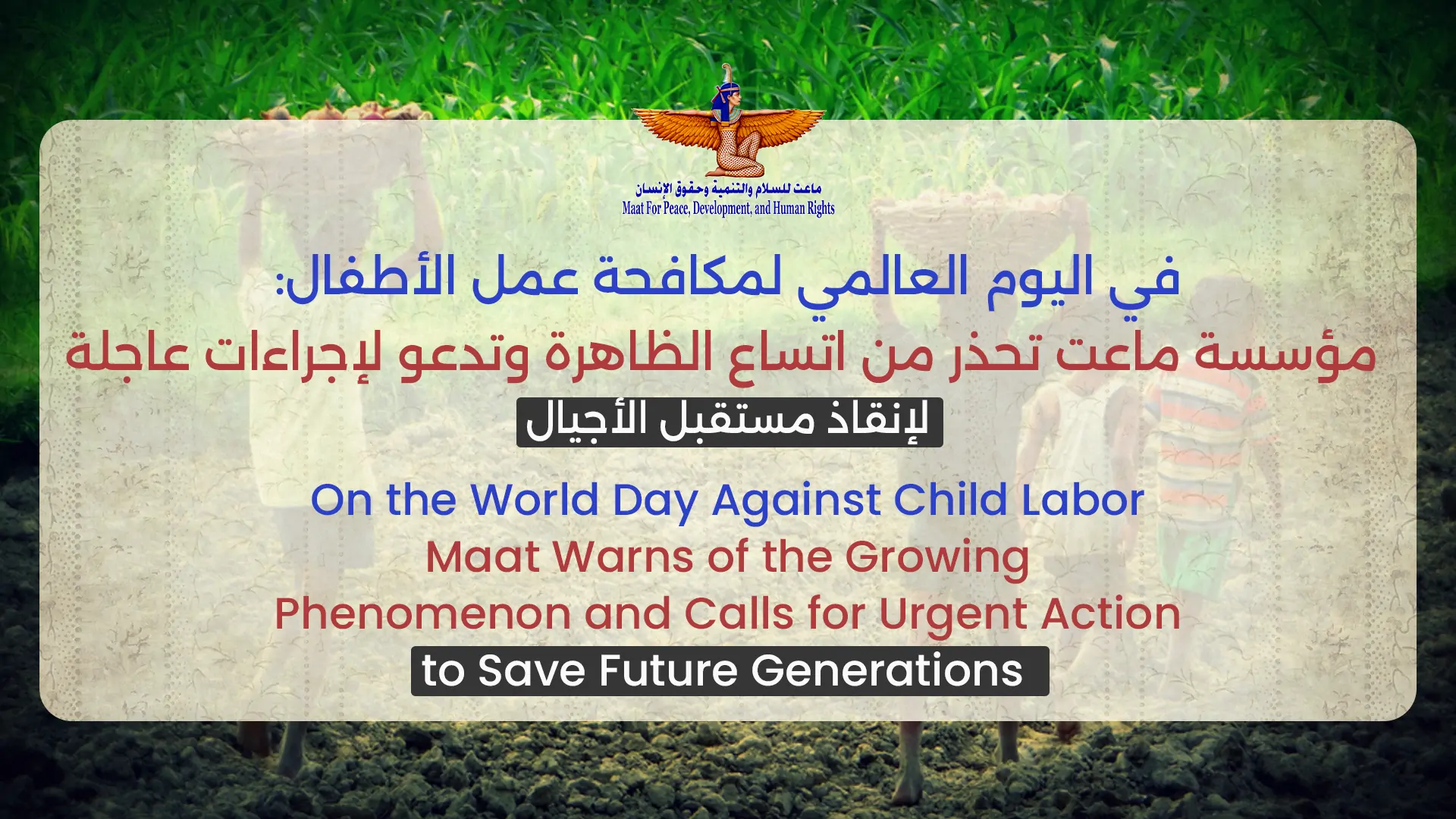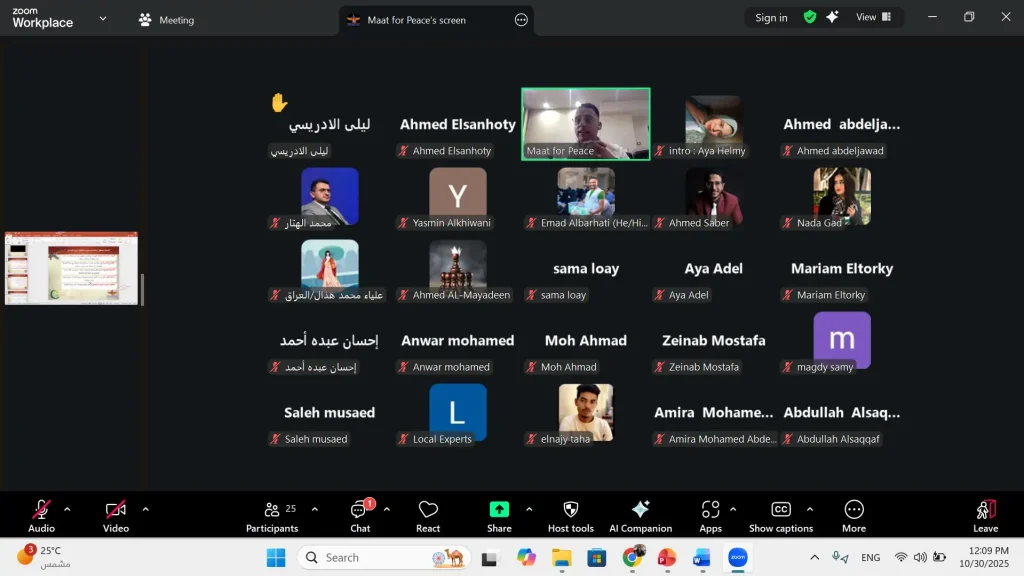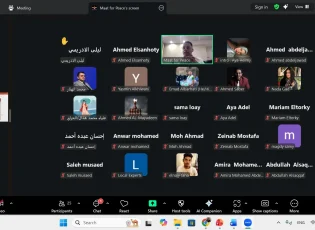Okeil: Children should not be born in battlefields nor grow up in places of exploitation.
On the occasion of the World Day Against Child Labor, Maat for Peace, Development, and Human Rights reaffirms its commitment to defending children's rights and warns of the continuous increase in child labor, particularly in developing countries and areas affected by conflict and extreme poverty. Millions of children are forced into hazardous work that threatens their physical and psychological safety and denies them their most basic rights.
The World Day Against Child Labor, observed on June 12 each year, comes amid ongoing violations of relevant international agreements. Maat emphasizes that eradicating child labor is one of the pillars of achieving social justice and sustainable development. Any leniency in addressing this phenomenon constitutes a blatant violation of international agreements, primarily the Convention on the Rights of the Child of 1989, the International Labor Organization's Convention No. 138 on the Minimum Age for Admission to Employment, and Convention No. 182 on the Worst Forms of Child Labor.
According to estimates from the International Labor Organization and UNICEF, over 160 million children worldwide are engaged in the labor market, nearly half of whom perform work classified as the worst forms, such as mining, forced agriculture, commercial exploitation, and coerced domestic work. In the Arab region, armed conflicts, displacement, and the absence of social protection exacerbate the phenomenon, with high rates of child labor recorded in informal sectors, without any legal or social protection.
In this context, Ayman Okeil, Chairman of Maat, stated: "Silence on the proliferation of child labor is silent complicity in crime and a betrayal of the most basic values of justice and human rights. We cannot speak of a sustainable future while our children are driven to work instead of sitting in classrooms. It is time to put an end to this brutal depletion of childhood innocence through real policies that include education, social protection, and providing economic alternatives for poor families."
Okeil called on "governments, especially in our Arab region, to prioritize this issue in their national agendas and allocate sufficient budgets to implement national strategies to eliminate child labor. We also hold the private sector accountable for ensuring child exploitation-free supply chains and urge the international community to increase its support for developing countries, particularly through developmental cooperation mechanisms and funding for education and decent work programs."
Maat seizes this occasion to highlight the plight of children in armed conflict areas, where childhood becomes an open arena for violations. Thousands of children are forced to leave school and are subjected to coercive labor, or are forcibly recruited by armed groups, or exploited in activities that threaten their lives and safety. These children live without the basic protections guaranteed by international agreements, such as the right to education, healthcare, psychological safety, and protection from violence and exploitation, making them among the most marginalized and vulnerable groups. The situations in Yemen and Sudan are stark examples of this, where UN reports have documented the recruitment of thousands of children in armed conflicts and the deprivation of many of them from education and basic services amid a near-total collapse of protection systems.
In light of this tragic reality, Maat holds the international community morally and legally responsible for these children and calls for urgent action to protect them from exploitation by supporting international monitoring and accountability mechanisms, providing adequate funding for humanitarian protection programs, and ensuring that child protection is a priority in all peace and reconstruction efforts. Maat also affirms that ending the suffering of children in conflict areas can only be achieved by ending the conflicts themselves and working diligently to build peaceful systems based on justice and human rights.
In conclusion, Maat emphasizes that protecting children from labor and exploitation is not just a moral responsibility but a legal and humanitarian duty that falls on everyone. On the World Day Against Child Labor, the foundation renews its call to decision-makers, civil society organizations, and UN agencies to work together to ensure a world where children's rights are respected, and every child is allowed to live their childhood with dignity.
shortlink: https://maatpeace.org/en/?p=44903












